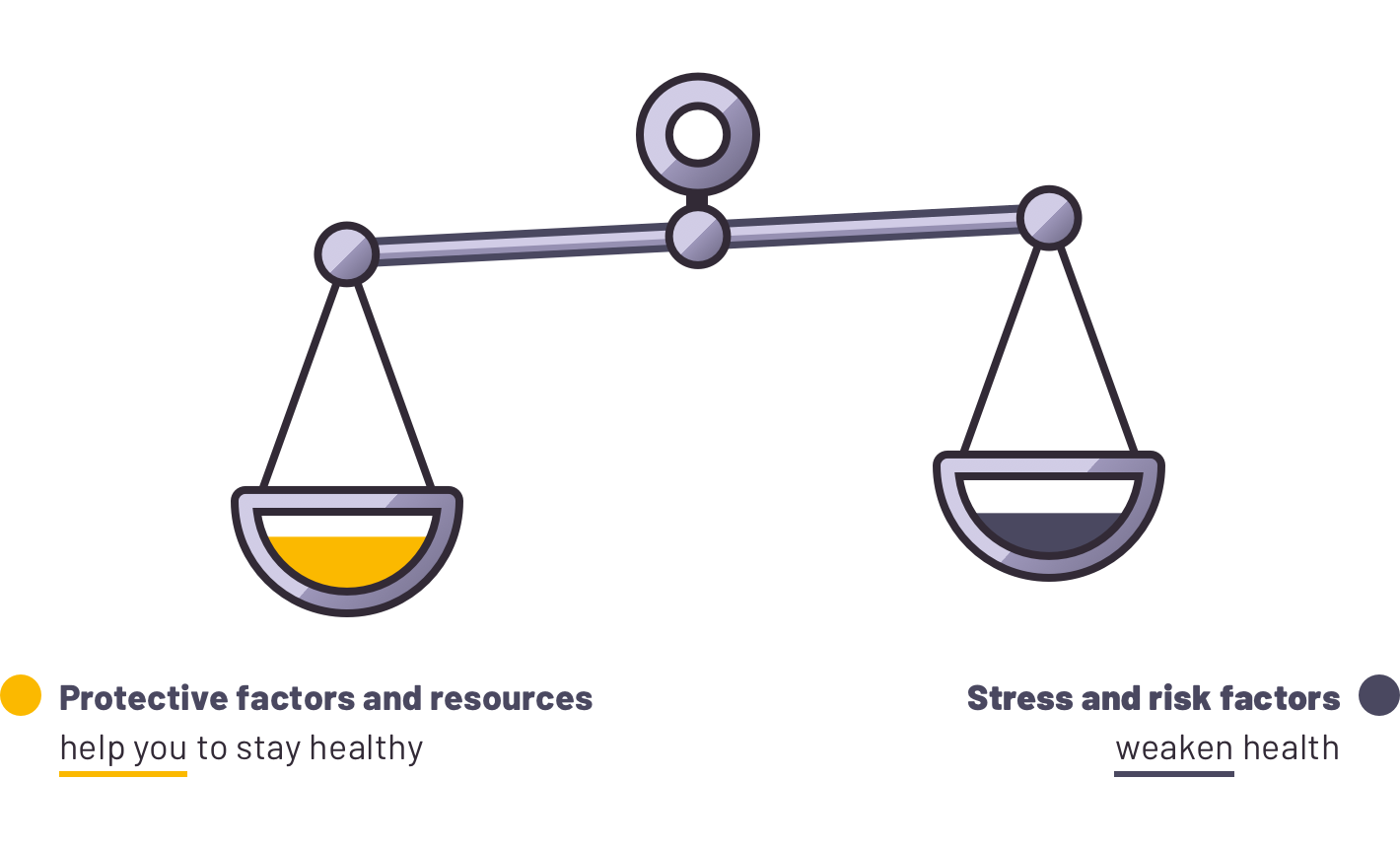I'm fine, and I want to stay that way
It's good that you're fine. Mental health isn't simply a given: just like physical health, you can look after it. Read on to find out how.
A mentally healthy person is able to realize his or her own abilities, can cope with the normal stresses of life, can work productively and fruitfully, and is able to make a contribution to his or her community" (WHO definition, 2004).
So much for the official definition. But what keeps us healthy, and what makes us ill?
The fluid transition between healthy and ill
All of us are somewhere between the extremes of "healthy" and "ill". That means none of us is simply one or the other: depending on our life situation we are sometimes more or less healthy, sometimes more or less ill.
Look at the scales in the following graphic. On one side there are protective factors and resources that help you to stay healthy. On the other there are stresses and threats.
If you're all right at the moment, that's because your protective factors and resources outweigh the stresses and personal threats. Like the scales, your mental well-being tips one way or the other as the relative weightings of these factors change.

«Like the scales, our state of mind fluctuates between more or less healthy and more or less ill. Throughout our lives.»
Protective factors & resources keep you healthy
Protective factors and resources are all those forces and circumstances that help you to cope with the requirements of life. You can influence some of them, but not all of them. A few examples:
- biological factors, such as a healthy hormonal balance
- psychological resources, such as good self-confidence, high frustration tolerance, an equable and sociable nature
- factors providing social protection include secure employment, a happy relationship – and naturally good friends
- religion and faith are spiritual aids to mental equilibrium.
What makes you strong? The clearer you are about that, the easier you will find it to maintain and reinforce these resources.
Stress and threats are a challenge to you
Some threats are simply part of life, while stress arises as a function of your life circumstances and your environment. It changes over time. You can influence some stresses and threats, but not all of them. A few examples:
- biological factors, e.g. a family predisposition towards mental illnesses
- psychological threats such as low stress tolerance, uncertainty when interacting with other people, weak self-awareness
- social stresses such as financial worries, tension in the workplace, relationship breakups or losses, physical illness, poor access to advisory and therapeutic services or stressful family circumstances
- It is a spiritual torment if we no longer believe that life has a point.
Strengthen your defences
You're fine, and you want to stay that way. The stresses that we are exposed to are not constant throughout our lives. If there's an increase in pressure at work or in your day-to-day family life, an extreme experience blows you off course. If financial problems arise or somebody close to you needs your help and support, it's important for you to be well prepared.
The stimuli make suggestions about how you can stock up on resources.
